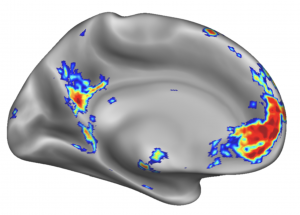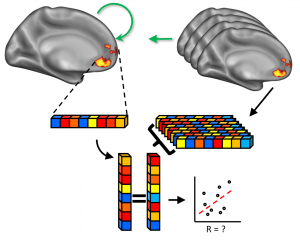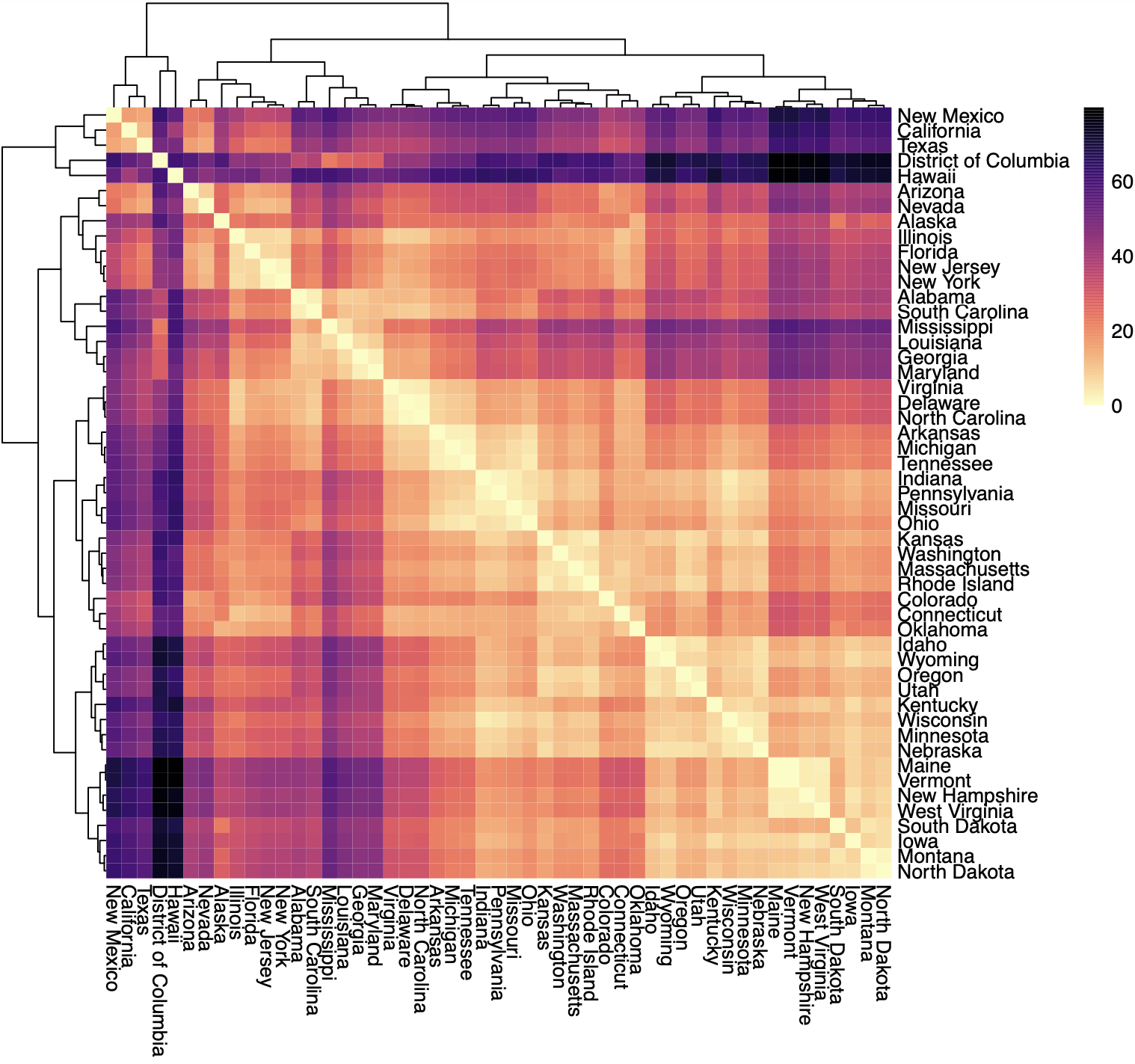When possible, we post our recorded talks and presentations on our lab’s YouTube channel.
Visit there to hear us in action talking about our work.
Self-Representation & Evaluation

The human sense of self is one of the defining characteristics of our species. Since the early 2000s, a large body of research has identified a system of brain regions that seem to serve self-referential processing. However, this same network serves a variety of other psychological phenomena that are not specific to self-representation, including those for social cognition, affective processing, memory, and sensory integration. To what extent can we disentangle some of these functions underlying various aspects of self-representation? Our previous research has linked elements of self-evaluation to structural and functional properties of the brain’s reward system using diffusion tensor imaging (DTI) and multivariate functional magnetic resonance imaging (fMRI). Building off our initial work, more deeply understanding the brain’s representation of self-referential cognition is one of the primary pursuits of the lab.
Social Cognition & Interpersonal Perception

The self does not exist in a vacuum and humans are a fundamentally social species. As such, our brains have evolved systems to detect, represent, and react to conspecifics and socially relevant information in the environment. Some of the principal questions in the lab concern the way in which the brain codes for information about the traits and motives of other individuals as well as the interplay between the self and the social environment. Do we use the same brain systems when evaluating ourselves as we do when evaluating others? To what extent does the closeness or similarity of others to your self color your perceptions of them? What are the psychological dimensions of social information encoding and how do these evolve over time? We explore some of these questions by combining fMRI with round-robin interpersonal perception designs, using naturalistic stimuli (e.g. audio narratives, movies), and employing multivariate pattern analysis methods.
Computational Social Science

There is a rapidly growing interest in computational methods in neuroscience, psychology, and social science more broadly. These methods are broadly defined and include everything from classic mathematical models to machine leaning to automated text analysis. In our lab, we are interested in bringing these approaches to bear on questions of social cognition, individual differences, and self-knowledge using neuroimaging, behavioral data, and large open databases. In particular, ongoing work in the lab is applying drift-diffusion modeling of self/other distinctions, predictive modeling of personality traits, and natural language processing of personal identity narratives.
